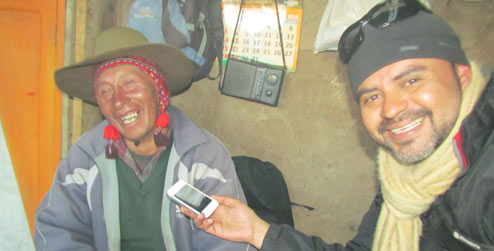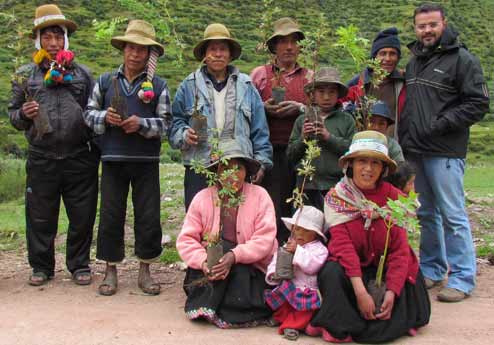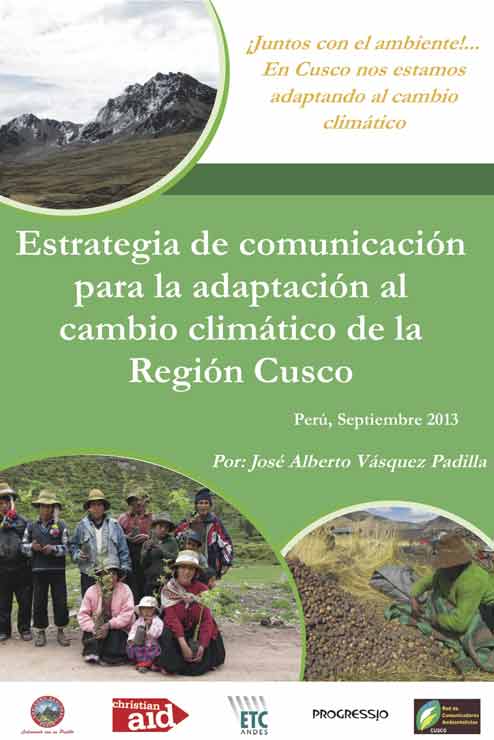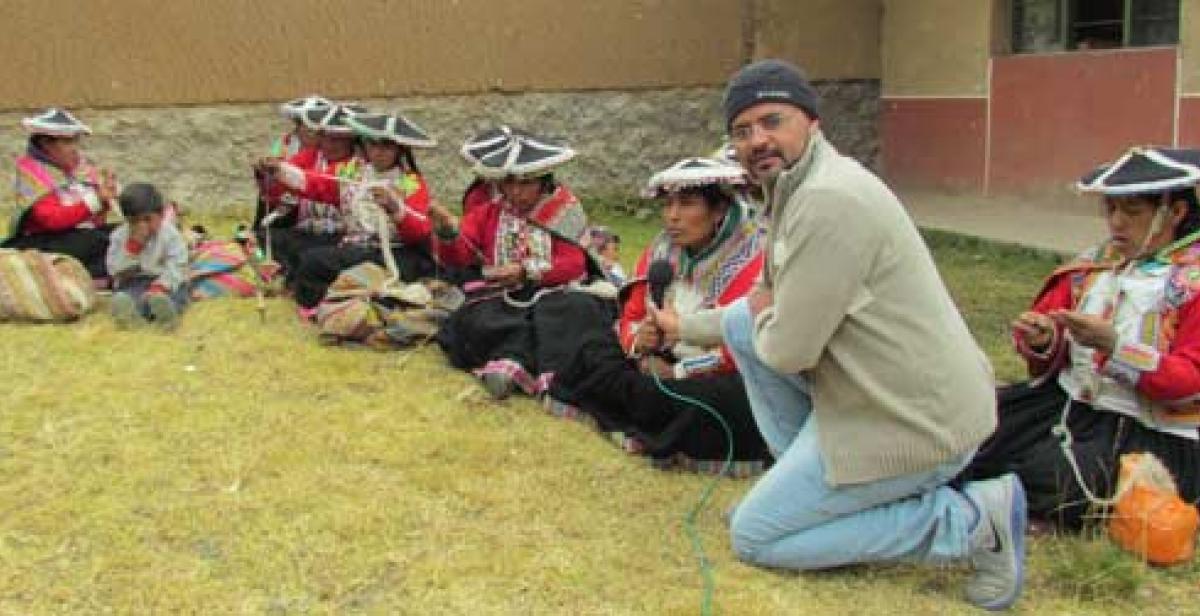“Together with the environment…. In Cuzco, we are adapting to climate change.”
That's the slogan of a new campaign encouraging people in Cuzco, Peru, to adapt to climate change. Thanks to the support of Progressio development worker Alberto Vasquez, the Cuzco region is now equipped with a Communications Strategy for Adapting to Climate Change. Here, Alberto writes about what he hopes will be achieved once the strategy is put into practice:
Peru ranks in the top ten as one of the world’s most bio-diverse countries. However, its biodiversity also means Peru is particularly vulnerable when faced with climate change.
In Cuzco, climate change is changing the water regimes in the area and changing the availability of goods that the local economy depends on. Tourism drives the main economic activity in the region and there are few alternative livelihoods, so climate change is having a high impact on people here.
In response, the Association for Ecology, Technology and Culture in the Andes (ETC Andes) has been working on a project to confront climate change focused primarily on an area called Pitumarca. The project is funded by Christian Aid, with collaboration from Progressio.
As a Progressio development worker, I worked with ETC Andes, and in consultation with the local community, to create a Communications Strategy that is designed to communicate messages about what measures can be taken by the local population.

We developed a plan for a multimedia communications campaign that will influence opinions, attitudes and practice for the better, both among the authorities and the Andean and Amazonian populations.
The document is written for the general population of the 13 provinces that make up the region of Cuzco. It also contains specific actions directed at institutional staff, community leaders and government authorities.

The strategy will be rolled out over a period of 3 years and is divided into two phases: first, there will be a campaign establishing a position and educating the public about actions that can be carried out to confront climate change. This phase will mean producing a series of printed materials, along with radio and television adverts, which will inform the population of Cuzco about the existence of the Regional Strategy in Response to Climate Change, its contents and the importance of understanding it.
The second phase will take the form of a broader intervention, using 'Edu-tainment' methodology (education through entertainment). A radio soap opera will be designed and disseminated with community mobilisation actions and community theatre backing it up.
An action plan is included in the strategy to encourage an inclusive approach to the project, combining everyone’s efforts to ensure that the Regional Strategy in Response to Climate Change becomes a regional priority. The strategy will be implemented by the regional government, through the Department for Natural Resources and Environmental Management, and by the institutions that make up the Technical Council in Response to Climate Change.
The strategy has been designed, now it's the difficult bit - making it a reality!

Alberto Vasquez was one of the last two Progressio development workers in Peru. Our programme in Peru is now closed.
Alberto was working with ETC Andes on a short term contract, supporting the development of a communications strategy to support people in Cuzco to adapt to climate change.
Photo captions:
1. Alberto Vasquez interviews craftswomen in Pitumarca as part of the community consultation.
2. Alberto Vasquez interviews an alpaca herder in Phinaya, Pitumarca, Peru.
3. Alberto Vasquez with members of the community involved in reforestation in Pitumarca, Peru.
4. Front cover of the Communications Strategy for Adapting to Climate Change in the Cuzco Region.



